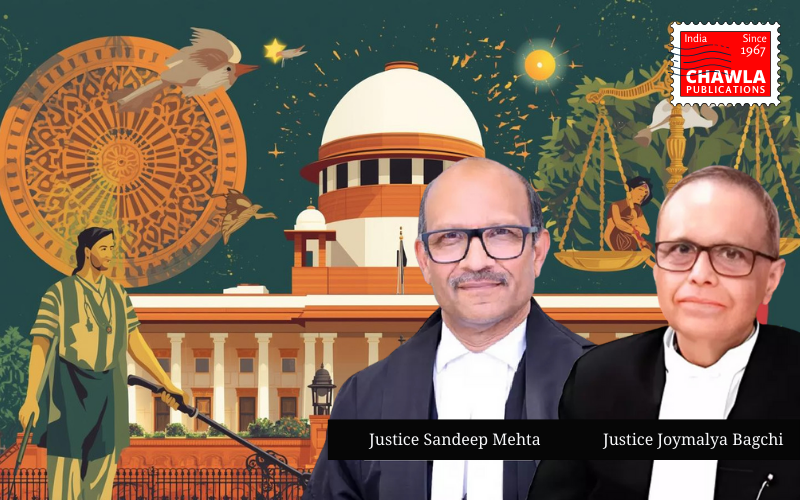The Supreme Court of India reaffirmed the discretion of a Karta in a Hindu Undivided Family (HUF) to alienate joint family property to address legal necessities, thereby binding all family members, including minors and widows.
On September 16, 2025, the Supreme Court of India, presided over by Justices Sandeep Mehta and Joymalya Bagchi, delivered a significant judgment in the case of Dastagirsab v. Sharanappa @ Shivasharanappa (D), ruling in favor of the appellant, Dastagirsab, who was the fifth defendant in the original trial.
The case revolved around the sale of a piece of joint family property by Sharanappa, the Karta (manager) of the Hindu Undivided Family (HUF). The plaintiff, Kashiraya, son of the first defendant Sharanappa, had challenged the sale, claiming it was executed without any family necessity or consideration, alleging that his father sold the property to support his wayward lifestyle and without any benefit to the family. The sale deed in question was executed in favor of Dastagirsab, the fifth defendant, on July 26, 1995.
The Trial Court had initially ruled in favor of the fifth defendant, upholding the sale of the property on grounds of legal necessity, a decision that was later reversed by the High Court of Karnataka. The High Court found that the fifth defendant failed to inquire sufficiently about the necessity of the sale or the utilization of the sale proceeds by the Karta.
However, the Supreme Court's decision reversed the High Court's ruling, backing the original decision by the Trial Court. The apex court held that the Karta of a Hindu Undivided Family possesses wide discretion in alienating joint family property, especially when it's done for legal necessity or the benefit of the estate. The Court recognized that expenses related to the marriage of a daughter could indeed create financial stress that justifies the sale of joint family property as a legal necessity.
The Supreme Court further clarified that the burden of proof to establish the legal necessity of the sale lies on the purchaser, which, in this case, was the fifth defendant, Dastagirsab. The Court found that the purchaser had adequately fulfilled this burden through evidence and cross-examination, establishing a clear link between the sale transaction and the financial needs arising from the marriage expenses.
Moreover, the Court acknowledged that the Karta had previously sold other HUF properties, and while the plaintiff argued these sales were not for legal necessity, no prior action was taken to challenge those transactions. The Supreme Court also noted that the plaintiff's delay in contesting the sale-claiming unawareness due to the lack of transfer of possession-was not credible, as the 5th defendant had a mutation certificate and land revenue records to prove possession.
Ultimately, the Supreme Court's decision to set aside the High Court's judgment and reinstate the Trial Court's ruling reaffirms the broad discretion given to a Karta under Hindu law, emphasizing that a bona fide purchaser who relies on the apparent authority of a Karta and the evidence provided should not be penalized for failing to prove facts within the exclusive knowledge of the coparceners. This judgment underscores the importance of the Karta's role and discretion in managing HUF properties and the principle of legal necessity in upholding such transactions.
Dastagirsab v. Sharanappa @ Shivasharanappa(D), (SC) : Law Finder Doc Id # 2779457




